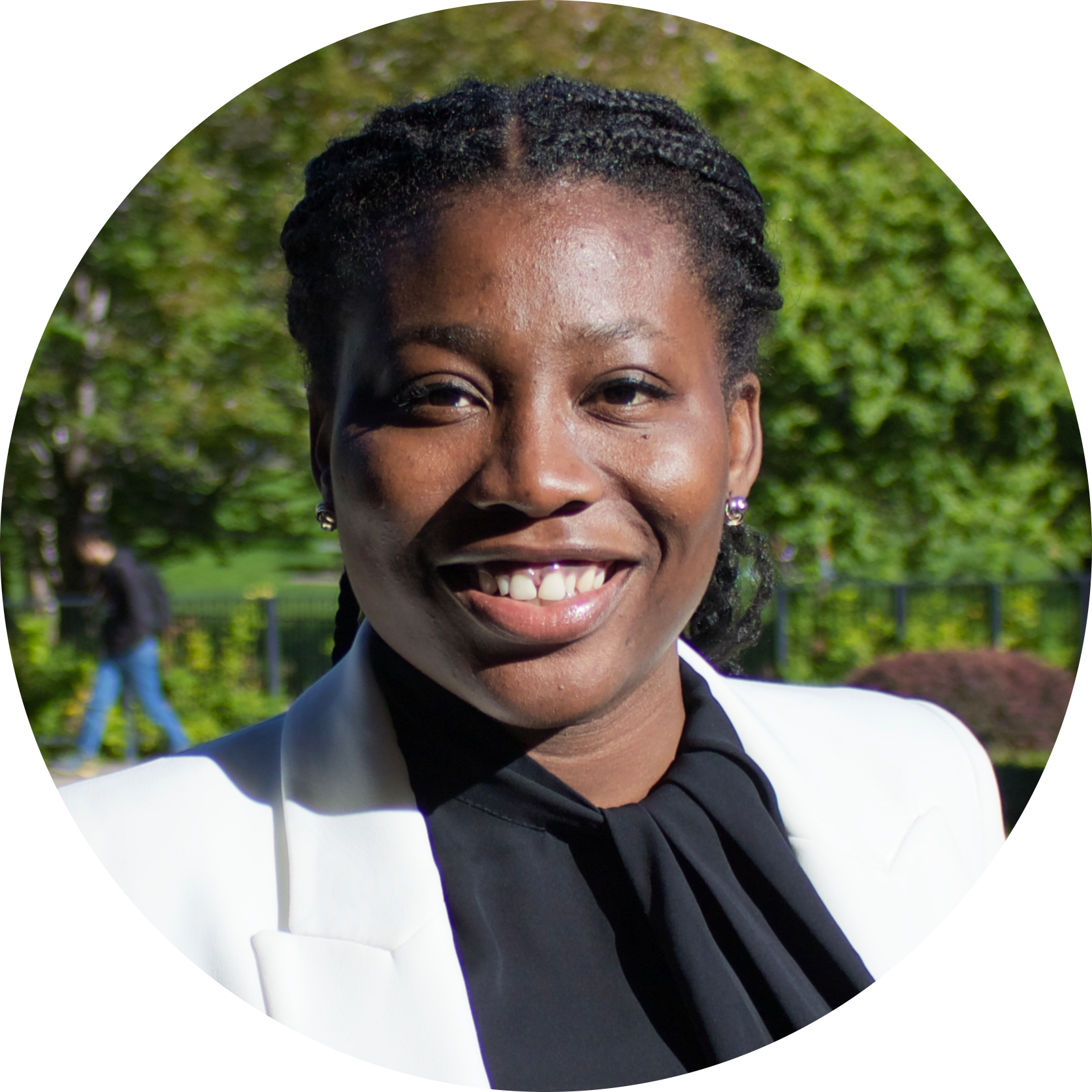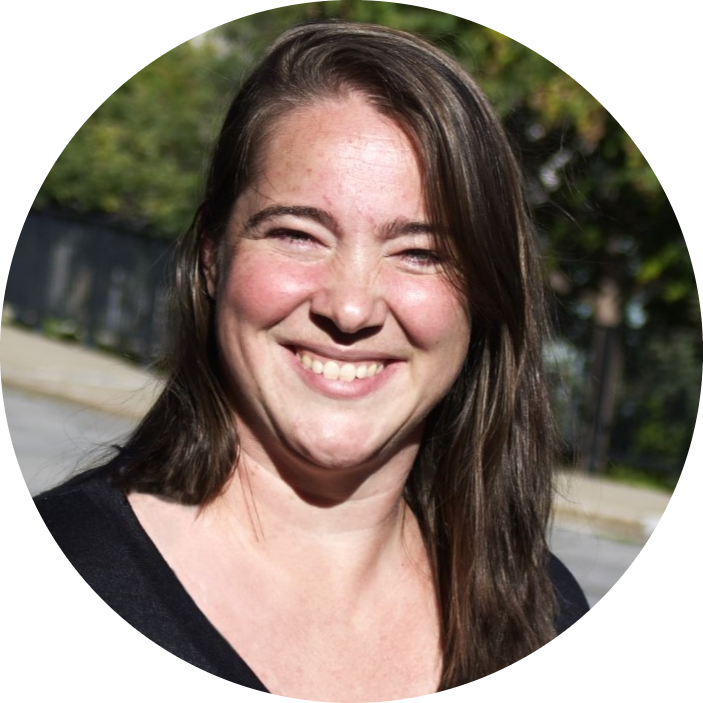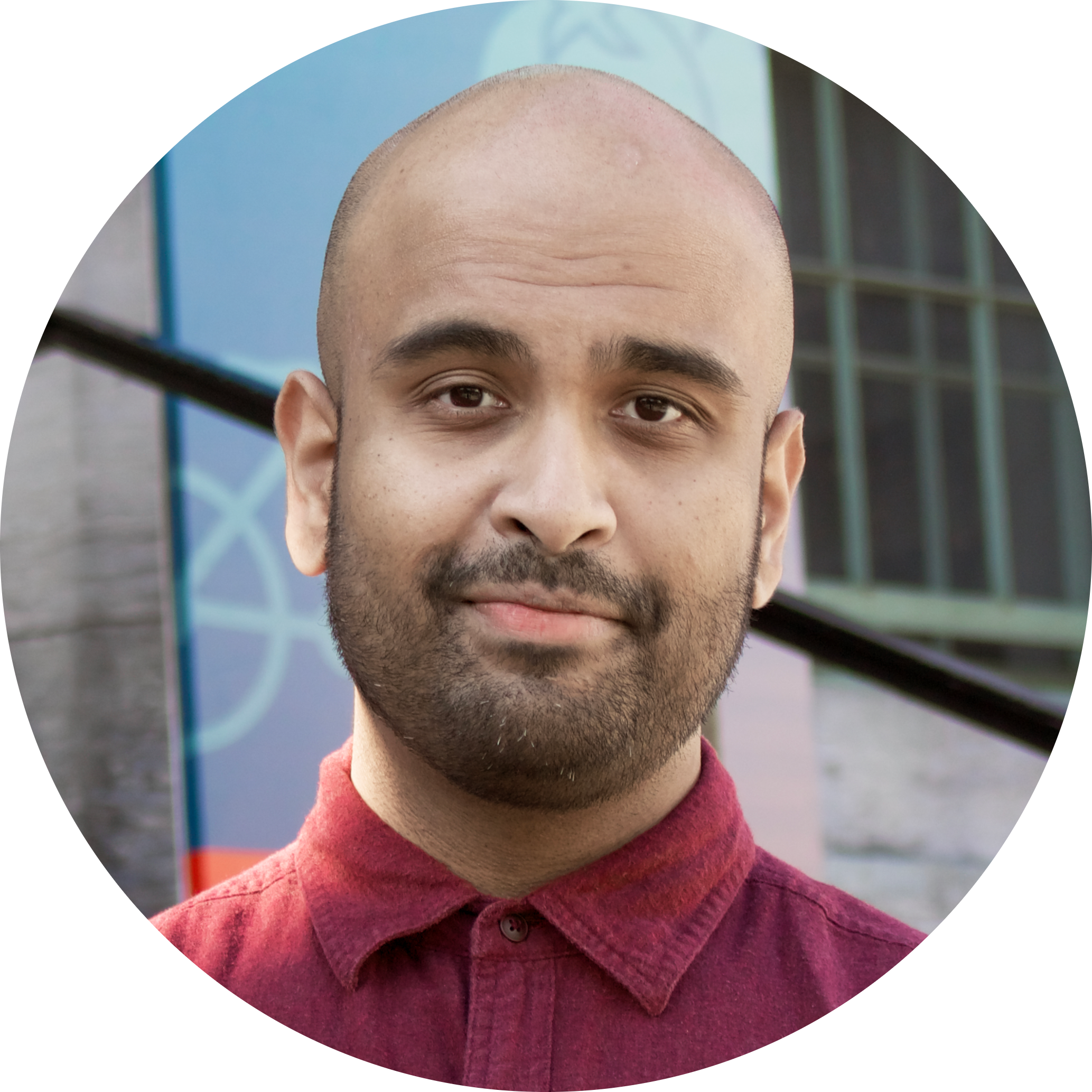Operations Team
|
|
Amélie Quesnel-ValléeExecutive Director, Consortium on Analytics for Data-Driven Decision-Making (CAnD3) Chair, Executive Committee Chair, Skills Committee Read moreAmélie Quesnel-Vallée is a Professor at McGill University, where she holds the Canada Research Chair in Department of Equity, Ethics and Policy (DEEP), School of Population and Global Health (SPGH), Faculty of Medicine and Health Sciences. She is the 2019-2020 recipient of the Fulbright Canada Distinguished Chair in Quebec Studies, SUNY Plattsburgh. She is also the founding Director of the McGill Observatory on Health and Social Services Reforms. Her research examines the contribution of policies to social inequalities in health over the life course. It appeared in journals such as The Lancet, the International Journal of Epidemiology, and Social Science & Medicine and was recognized through several international professional associations’ awards, including from the American Sociological Association, the Population Association of America, and the American Public Health Association. Committed to furthering public understanding of science, she is frequently sought by the media such as National Public Radio, the New York Times, and Business Week. In 2014, she was elected President of the International Sociological Association Research Committee on the Sociology of Health in recognition of her leadership in the field. She has served on several scientific advisory councils, including of Statistics Canada, and currently serves on the Governing Council (Board of Directors) of the Canadian Institutes of Health Research.
|
|
|
|
Arianne Rodriguez-SaltronProject Coordinator Read moreArianne has a BA in International Relations and Development Studies and has been working in grant project administration with different universities and colleges since 2017. She lived in Chile for three years where she worked at the Pontificia Universidad Católica de Chile at the Centre for Astro-Engineering. This experience reaffirmed for her the passion she has for working in higher education with students, faculty and staff and propelled her pursuit of a career as a Project Coordinator. Arianne enjoys travelling and discovering new places whether they be within her own city or abroad. She also loves animals and hopes to one day have a pet pig.
|
|
|
|
Divine-Favour OfiliTraining Coordinator Read moreDivine-Favour Chichenim OFILI is a public health professional and a doctoral student at McGill University. Having obtained a BSc in Public Health (Hons) from the University of Calabar, Nigeria and an MScPH degree from McGill University, Canada, she is well-grounded in public health research and programs. She is focused on improving the health of underserved populations, particularly migrant and refugee populations, through research, community-based intervention and policies. Through her PhD thesis, she aims to investigate the impact of immigration status on the patterns of healthcare use and the associated health outcomes among people with diabetes in Quebec. Her enthusiasm for process improvement launched her into the program coordination workspace where she has managed local and global health programs, including the McGill Global Noncommunicable Diseases and McGill Child Health programs. She enjoys good food, watching food shows, as well as collecting and caring for plants.
|
|
|
|
Geneviève Brunet-GauthierResearch Administrator Read moreGeneviève has worked at McGill since 2008 for the Quebec Inter-University Center for Social Statistics (QICSS) and the Center on Population Dynamics (CPD). She does a little of everything (HR, finances, planning research activities, communications, etc.). She obtained a master's degree in sociology from McGill University. She loves all outdoor activities, among others canoeing and hiking. She has just returned from maternity leave (recent mother of a little angel/demon named Damien).
|
|
|
|
Michaela BunakovaTraining Program Facilitator Read moreMichaela is a PhD student in Sociology at McGill University, working under the wing of Professor Amelie Quesnel-Vallee. She joined McGill as an MSc Epidemiology student in Fall 2019. She holds another MSc degree in Comparative Social Policy from The University of Oxford and a Ba (Hons) in Politics, Philosophy and Economics from The University of Manchester. Her research interests include social epidemiology, evaluation of health systems, health inequalities and family health policy using a combination of qualitative and quantitative research design. Her most recent project attempted to quantify health spillover benefits of having a doctor family member on one’s health and how these benefits differ across countries with varying family policy design. Michaela was raised in Slovakia and educated in the United Kingdom. In her free time, she likes to walk her miniature dachshund dog and keep her plants alive. She also loves to sit down with a good book and would never refuse to discuss the works of her favorites – Milan Kundera and Chimamanda Ngozi Adichie. |
|
|
|
Katarina BunakovaProgram Assistant Read MoreKatarina Bunakova is an undergraduate student dedicated to her double major in Software Engineering and Economics at McGill University. Her academic interests are driven by a desire to explore the transformative applications of AI in biomedicine and to unravel the intricate economic implications that emerge from this technological frontier. Katarina's journey began in Slovakia, her place of origin, and later took her to Canada, where she completed her secondary education and earned her DEC in Health Science from Marianopolis College. This cross-cultural experience has enriched her perspectives and provided her with a broad and global outlook. When Katarina takes a break from her academic endeavours, she becomes an enthusiastic artist focusing on bringing local architecture to life through her drawings.
|
|
|
|
Enkhuun ByambadorjCommunication Coordinator Read moreEnkhuun Byambadorj is pursuing a Joint Honours BA in International Development and Environment at McGill University. Her research interests include air quality and health and using the social determinants of health lens to advocate for undocumented migrants' health rights. Her undergraduate theses examine Beijing's coal-to-clean energy policy in relation to thermal comfort and the rights-bearing capacity of undocumented migrants in international human righst law. She is also the Co-Founder and Operations Leaad at Breathe Mongolia - Clean Air Coalition, a non-profit working to eradicate air pollution in Mongolia through education, multi-stakeholder collaboration, and equitable and accountable policies. |
|
|
|
Yutang SongCommunication Assistant Read moreYutang Song is a first-year Master of Information Studies in Data Science at McGill University. Her research interests focus on data-based authorship analysis, how data shapes the world of authorship and exploring the profound influence of data on people's writing styles. Before she joined McGill, Yutang was raised in China and educated in Canada with a Bachelor of Journalism from Toronto Metropolitan University and a wealth of previous experience in the communications field. In her free time, she enjoys swimming, takes to the open road for thrilling road trips, ventures into the wilderness for hikes, and cycling adventures. When her mind seeks relaxation, you can find her immersed in the pages of a good book or grooving to the rhythms of music.
|
|
|
|
Clara Bolster-FoucaultGuest Speaker Read moreClara Bolster-Foucault is a doctoral candidate in Epidemiology at McGill University and a 2021-2022 CAnD3 Fellow. Her research focuses on evaluating health services, systems, and policies from an equity lens to understand how they impact the health and well-being of underserved populations. Clara’s doctoral thesis examines social inequity in aging in place in Quebec and explores the role of access to primary healthcare and social support in shaping these inequities. In tandem with her thesis, Clara is working with SE Research Centre to evaluate the applicability of a case-mix classification system using interRAI data in transitional home care programs in Ontario. She is an advocate for bridging the gap between research, policy, and practice, and is interested in building collaborative partnerships with knowledge users and people with lived experience to guide research questions. |
|
|
|
Aimy CronerInterim Research Administrator Read moreAimy Croner recently graduated with a BA in Psychology and a minor in Anthropology at McGill University. Her research interests include the improvement of health policies for immigrants in Canada with a focus on issues relating to accessibility and how to resolve social inequalities in health using social determinants of health. As an immigrant from Sri Lanka, she hopes to offer this field of research a new lens through her immediate experience with the healthcare system as a foreign-born citizen overcoming the many social barriers surrounding accessibility issues in Canadian services, including language and cultural barriers. Moreover, she is also interested in understanding the aging trajectories of immigrant populations, as not everyone has the opportunity to age with purpose. More specifically, the role that social determinants of health play in shaping the aging experiences for Canada's refugee population. In her free time, she likes to paint and spend time with her family. She also enjoys perfecting her makeup skills as well as reading poetry.
|
|
|
|
Paul HolyokeChair, Intersectoral Committee Member, Executive Committee Read moreDr. Paul Holyoke’s research interests include people’s experiences with the Canadian health system; evaluation of health care policies, programs and systems; the governance and management of health care organizations in Canada; and societal perspectives on health, health care, illness and disability. He has a Ph.D. in Health Policy from the University of Toronto, a MSc(Econ) from the London School of Economics, and a law degree from the University of Toronto. From 2005-2011, Paul served a 6-year term as a member of the Board of Directors of the Waterloo-Wellington Local Health Integration Network, and he chaired its Community Council.
|
|
|
|
Sakeef KarimData Science Instructor Read moreSakeef M. Karim is a PhD Candidate in McGill University’s Sociology Department, a trainee with McGill’s Centre on Population Dynamics, a student member of the Centre for the Study of Democratic Citizenship, and a 2020-21 CAnD3 Fellow. His research can be organized around three areas of inquiry: ethnic identification in immigrant societies; democracy, populism and nationalism in the contemporary world; and social demography. As a researcher, Sakeef relies on a range of quantitative techniques to unpack social and political phenomena, from latent variable models to social sequence analyses. His work is funded by the Social Science and Humanities Research Council of Canada, from whom he received a Joseph-Armand Bombardier Doctoral Scholarship.
|
|
|
|
Zilin LiPostdoctoral Researcher Read moreZilin Li is a post-doctoral researcher in Consortium on Analytics for Data-Driven Decision-Making at McGill University. She received her Ph.D. in Public Policy from the Hong Kong University of Science and Technology and her M.A. in Social Policy from The Chinese University of Hong Kong. Before her Ph.D., she worked on a research project examining the sub-national variation of public attitudes toward social policy in urban China as a research assistant at the Education University of Hong Kong. Her most recent research explores the factors from the family, the market, and the government that drive the formation of long-term care provision in Mainland China. Her research interests include long-term care provision, healthcare reform, and social policy topics concerning population aging. In her free time, Zilin enjoys classical music, figure skating, and travelling.
|
|
|
|
Leah MacfadyeneLearning and Learning Analytics Advisor Member, Skills Committee Read moreLeah Macfadyen is an Associate Professor of Teaching in the Department of in the Department of Language and Literacy Education, Faculty of Education, The University of British Columbia, and Director of Curriculum and Instruction in the UBC Master of Educational Technology Program (met.ubc.ca). She is a broad-ranging interdisciplinarian, with graduate degrees in the experimental sciences and in the humanities and social sciences. Dr. Macfadyen’s early eLearning research drew on her interest in theories of culture and intercultural communication, and was motivated by the reality of our increasingly diverse learner audience. Latterly, the rising tide of learning data captured by learning technologies, and the emergence of the field of learning analytics, spurred Dr. Macfadyen to also bring her analytic and scientific skills to the study of virtual learning. Her research – qualitative and quantitative – has been published in respected peer-reviewed journals in several fields (https://www.researchgate.net/profile/Leah_Macfadyen/contributions). In parallel, Dr. Macfadyen has also invested time in developing and teaching experiential and (hopefully) transformative learning experiences on topics such as sustainability, systems thinking and global issues. Dr. Macfadyen is inspired by the potential for learning analytics to offer actionable insights into our teaching and learning contexts and practice: who our learners are and how that has changed over time, what choices our learners make and how that affects outcomes, and how design and teaching innovations impact learner behavior and learning outcomes. She is also keen, however, to engage researchers and practitioners in ongoing critical discussions about the limits of ‘big data’, the challenge of data literacy, and the ethical and social implications of this work.
|
|
|
|
Miles TaylorChair, Substantive Committee Member, Executive Committee Read moreMiles G. Taylor is a sociologist, gerontologist, and demographer specializing in the areas of physical and mental health, life course disadvantage, population aging, and family dynamics. A secondary area of expertise surrounds applying and teaching longitudinal quantitative methodologies with relevance to life course questions. Her research primarily examines processes of advantage and disadvantage across the life course and their implications for health in older adulthood. Her research has been published in the Journals of Gerontology: Social Sciences, the Gerontologist, Journal of Aging and Health, and Social Science and Medicine and has received funding from the National Institute on Aging, Fulbright, the Social Sciences and Humanities Research Council of Canada (SSHRC), and the Claude Pepper Foundation. She was recently elected a fellow of the Gerontological Society of America (GSA), and won the 2017 Busse Research Award from the International Association of Gerontology and Geriatrics (IAGG) and the FSU 2015 University Teaching Award.
|
|
|
|
Rachelle DongResearch Assistant - Knowledge Mobilisation 
Read moreRachelle Dong is poised to embark on her fourth year as an Economics major at McGill University, where she has honed her expertise in marketing and communications through her minors in Marketing and French Language & Literature. Originating from Ho Chi Minh City, Vietnam, Rachelle possesses a profound appreciation for global cultures and culinary diversity. Acknowledging the pivotal role of nutrition in optimizing productivity, she co-founded a nutritional organization alongside CanD3, committed to championing the importance of lunchtime in corporate settings. Throughout her university tenure, Rachelle has actively engaged in various business case competition committees and served as the Vice-president of Events for the Economics Students' Association. Leveraging her extensive event management background, Rachelle is poised to make substantial contributions to CanD3's event execution strategies. |

















